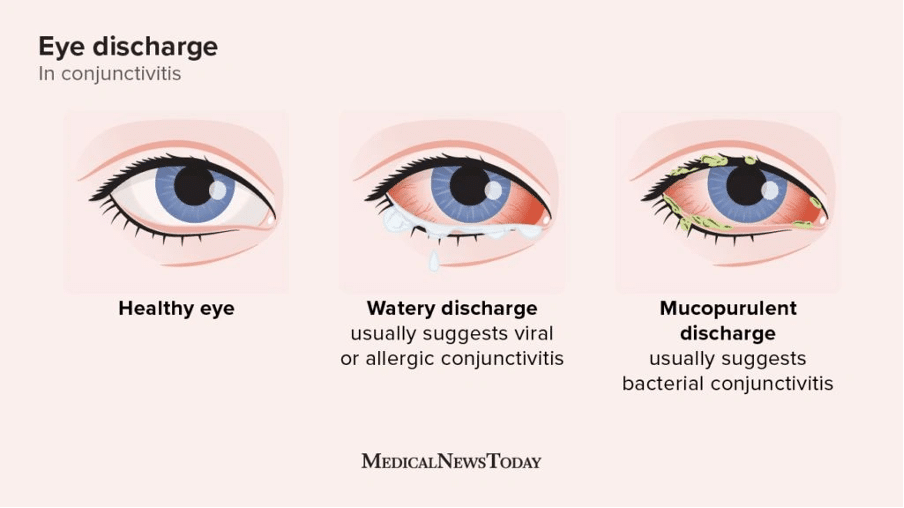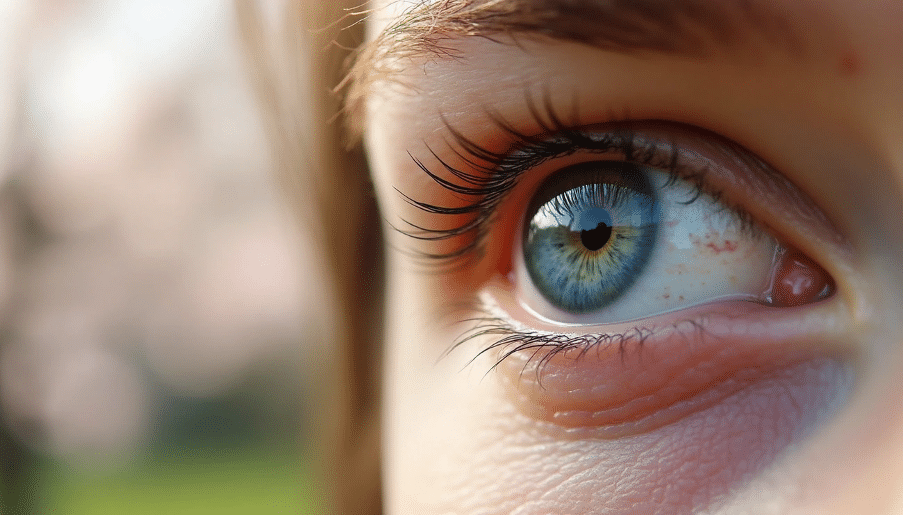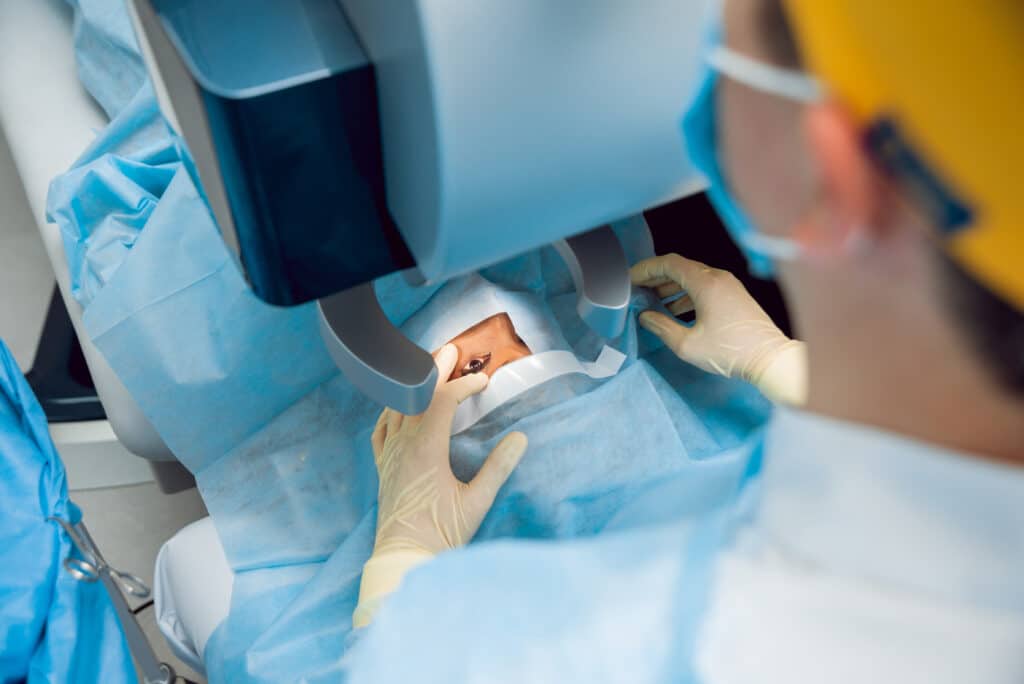Seasonal allergies trouble almost half of Brits. London residents face a tougher challenge because the city’s pollution levels “supercharge” pollen. Medical experts suggest allergy symptoms might show up two weeks early this year. Birch pollen has already started releasing into the air ahead of its usual schedule.
Patients thinking about laser eye surgery need to plan around pollen season carefully. Hayfever symptoms like itchy, watery eyes can substantially affect your LASIK recovery. This doesn’t rule out the procedure entirely. The relationship between seasonal allergies and laser vision correction is vital knowledge for Londoners who want clear vision without glasses.
This piece explores how seasonal allergies affect your eyes and the best timing for laser eye surgery in London’s environment. You’ll learn about effective treatment options and practical steps to take before and after surgery. These steps help ensure the best results, even if you deal with hayfever. Let’s tuck into everything you should know about eye surgery during allergy season.
What are seasonal allergies and how do they affect the eyes?

Image Source: MedicalNewsToday
Allergic conjunctivitis hits the eyes when allergens inflame the conjunctiva, a clear membrane that covers the white part of the eye and inner eyelids. This eye condition affects about one in five adults in the UK, making it one of the most common eye problems people face.
Common allergens in London
London’s environment creates the perfect breeding ground for allergens that set off eye allergies. Here’s what triggers them most:
- Tree pollens (alder, ash, birch, and oak) peak from late March to mid-May
- Grass pollens show up most from mid-May to July
- Weed pollens (including mugwort) take over from late June to September
The summer months hit Londoners hard since 95% of hay fever sufferers react to grass pollen. The city’s urban environment also exposes people to dust mites, pet dander, mould spores, and air pollution that make things worse.
How the immune system reacts to pollen
The body’s immune system goes into overdrive when pollen touches the eyes. White blood cells attach themselves to protective mast cells in the eye’s mucous membranes. These mast cells release histamine and other chemicals into tears and the eye surface. The body thinks harmless substances like pollen are dangerous invaders, just like bacteria or viruses. This reaction leads to inflammation and those uncomfortable seasonal allergy symptoms.
Why the eyes are especially vulnerable
Eyes catch allergens easily because they sit exposed on our face with a moist surface that traps airborne particles. The conjunctiva houses many mast cells that release inflammatory substances when triggered. The reaction happens mostly under the eyelids, while the cornea stays largely unaffected. Tiny blood vessels around the eyes start leaking, which causes inflammation, swollen tissues, and watery discharge.
Hot and dry weather makes everything worse by drying out the eyes. The body tries to help by washing out allergens with tears, but this natural response backfires and creates even more watering and discomfort. This makes London’s peak pollen seasons tough on people’s eyes.
Recognising the symptoms of eye allergies
Eye allergy symptoms need proper management, especially when you have plans for laser eye surgery. These allergies usually affect both eyes at the same time. Your symptoms can develop faster when exposed to allergens.

Itchy, red, or watery eyes
Intense itching stands out as the main symptom of eye allergies. This sets allergic conjunctivitis apart from other eye conditions. You might feel an overwhelming urge to rub your eyes. This only makes symptoms worse by releasing more histamine.
Tiny blood vessels in the conjunctiva become swollen from allergens and cause red eyes. Your eyes will likely tear up excessively or produce a clear, watery discharge. The discharge might look stringy or mucus-like at times.
Swelling and puffiness
Allergic reactions often cause puffy, swollen eyelids. Your eyelids can swell more on one side while sleeping. Fluid moves downward over time and creates “bags” under your eyes. Blood vessels leak and blood pools beneath the eyes, which creates “allergic shiners” – dark circles under the eyes. The puffiness in your eyelids shows up most in the morning.
Dryness or burning sensation
Your eyes might feel dry despite being watery. This happens because allergen-induced inflammation affects normal tear production. Eye allergies often come with a burning feeling. Something like sand or grit might seem to be in your eyes, which feels quite uncomfortable. Bright environments can become painfully irritating due to light sensitivity (photophobia). These symptoms often show up with nasal allergy signs like sneezing or a runny nose. This creates a complete allergic response affecting both your eyes and respiratory system.
How to treat eye allergies effectively

Image Source: Healthline
Quick treatment of eye allergies gives you relief and is a vital step if you’re thinking about laser eye surgery. Let’s look at ways to treat seasonal allergies that affect your eyes.
Over-the-counter antihistamines
Oral antihistamines control allergy symptoms by blocking histamine – the chemical that triggers allergic reactions. Non-drowsy antihistamines work best during the day. The drowsy ones might help more if allergies keep you up at night. You should know that oral antihistamines might make symptoms worse by drying out your eyes. Pregnant women who need antihistamines often get a recommendation for Loratadine.
Eye drops and cold compresses
Eye drops target the problem directly and come in several types:
- Artificial tears clean out allergens and add moisture to dry, irritated eyes
- Antihistamine eye drops ease itching and redness quickly but you might need to use them often
- Mast cell stabilisers stop allergic reactions before they start and work well for long-term use
- Combination drops with antihistamines and mast cell stabilisers give quick relief that lasts
Cold compresses reduce swelling, pain, and dryness effectively. You can make one by wrapping ice in a clean cloth or putting a damp towel in the freezer for 15 minutes. Place it on your closed eyelids for up to 20 minutes to avoid frostbite.
Lifestyle changes to reduce exposure
Your best defence starts with avoiding allergens. Close your windows during high pollen times and run the air conditioning. Wraparound sunglasses protect your eyes from allergens outdoors. Clean hands after possible allergen contact stops particles from reaching your eyes. People with dust mite allergies should use mite-proof bedding covers and wash their bedding in hot water often.
When to see a specialist
You should see an eye specialist if symptoms don’t improve with over-the-counter treatments, especially with severe discomfort, vision changes, or too much swelling. A professional check-up matters if you plan to get laser eye surgery since certain eye conditions need treatment first. Your ophthalmologist might prescribe stronger medications like corticosteroid eye drops for severe cases. These need careful monitoring because of possible side effects.
Seasonal allergies and laser eye surgery timing
The connection between eye allergies and laser vision correction plays a most important role, with allergic conjunctivitis affecting up to 40% of the population. Timing becomes a vital factor to achieve the best results if you’re thinking over laser eye surgery while dealing with seasonal allergies.

Can you have LASIK during allergy season?
Patients with mild to moderate allergies can usually undergo LASIK surgery. Notwithstanding that, eye doctors usually recommend avoiding procedures during active allergy seasons. Complications might arise for people with moderate to severe ocular allergies, as chronic forms of allergic conjunctivitis are sometimes considered absolute contraindications to LASIK. Your allergy history needs discussion during consultation.
Do you want laser eye surgery but deal with seasonal allergies? Our London eye experts can help you find the perfect time for a smooth recovery.
How allergies affect LASIK recovery
LASIK’s after-effects often mirror eye allergy symptoms – dryness, itching, irritation and grittiness. Therefore, an allergy flare-up during recovery can magnify these symptoms and potentially cause increased discomfort and inflammation. You must avoid rubbing your eyes after surgery, which becomes challenging especially when you have allergies and the urge to rub is strongest.
Best time of year for laser eye surgery in London
Results work best when you schedule your procedure well before your typical allergy season starts. This timing allows you to:
- Let your vision stabilise (usually 3-6 months)
- Give your eyes time to fully heal before allergen exposure
- Benefit from protective steroid drops (usually used for two weeks post-surgery) when pollen counts rise
London’s winter months often provide an ideal window, giving enough recovery time before spring pollens appear.
Precautions to take before and after surgery
These measures help ensure success:
- Use prescribed steroid and anti-inflammatory eye drops regularly
- Wear protective eyewear outdoors to block airborne allergens
- Apply cold compresses to reduce swelling (never rub your eyes)
- Keep your environment clean to minimise allergen exposure
- Think about using a humidifier during winter months when indoor heating can increase dryness
LASIK often improves patients’ allergy experience overall, especially for former contact lens wearers who don’t need to touch their eyes regularly anymore.
Conclusion
Seasonal allergies definitely make laser eye surgery more challenging for Londoners. We’ve looked at how city pollution makes pollen worse and why choosing the right time for your procedure matters so much. Without doubt, allergic reactions can affect healing after surgery, but good management leads to great results. London’s winter months are a great time to get laser eye surgery. Your eyes can heal completely before spring pollen shows up. On top of that, you’ll find it easier to stick to your medications and avoid touching your eyes when there’s no constant itching from allergens. Do you want laser eye surgery but deal with seasonal allergies? Our London eye experts can help you find the perfect time that ensures a smooth recovery.
Allergies shouldn’t stop you from getting rid of your glasses. Many patients tell us their allergy symptoms improved after LASIK, especially when you have worn contact lenses before and don’t need to touch your eyes anymore. Each person’s allergies are different, so your surgeon will create a timeline that fits your specific allergy patterns. Good planning, proper treatment, and the right precautions help you achieve perfect vision whatever the pollen count might be. Success comes from knowing your allergy triggers, working with specialists, and staying alert during recovery. The path might have a few extra steps, but most Londoners can still reach their goal – life without glasses or contacts.
FAQs
Q1. Can I have laser eye surgery if I suffer from seasonal allergies? Yes, you can have laser eye surgery even if you have seasonal allergies. However, it’s best to schedule the procedure outside of your typical allergy season to ensure optimal recovery. Discuss your allergy history with your ophthalmologist during the consultation to determine the best timing for your surgery.
Q2. What are the common symptoms of eye allergies? Common symptoms of eye allergies include intense itching, redness, watery eyes, swelling and puffiness of the eyelids, and a burning sensation. You may also experience a feeling of dryness or grittiness in your eyes, despite them being watery.
Q3. How can I effectively treat eye allergies? Eye allergies can be treated with over-the-counter antihistamines, eye drops (such as artificial tears, antihistamine drops, or mast cell stabilisers), and cold compresses. Lifestyle changes to reduce allergen exposure are also helpful. If symptoms persist, consult an eye specialist for stronger treatments.
Q4. When is the best time to have laser eye surgery in London? The winter months often present an ideal window for laser eye surgery in London. This timing allows your eyes to fully heal before the spring pollen season begins. It’s generally recommended to schedule the procedure well before your typical allergy season starts.
Q5. What precautions should I take after laser eye surgery if I have allergies? After laser eye surgery, use prescribed eye drops diligently, wear protective eyewear outdoors, apply cold compresses to reduce swelling (but never rub your eyes), maintain a clean environment to minimise allergen exposure, and consider using a humidifier during dry winter months. Always follow your surgeon’s specific post-operative instructions.
Authors & Reviewer
-
 Olivia: Author
Olivia: AuthorHi, I'm Olivia, a passionate writer specialising in eye care, vision health, and the latest advancements in optometry. I strive to craft informative and engaging articles that help readers make informed decisions about their eye health. With a keen eye for detail and a commitment to delivering accurate, research-backed content, I aim to educate and inspire through every piece I write.
-
 Dr. CT Pillai: Reviewer
Dr. CT Pillai: ReviewerDr. CT Pillai is a globally recognised ophthalmologist with over 30 years of experience, specialising in refractive surgery and general ophthalmology. Renowned for performing over 50,000 successful laser procedures.

